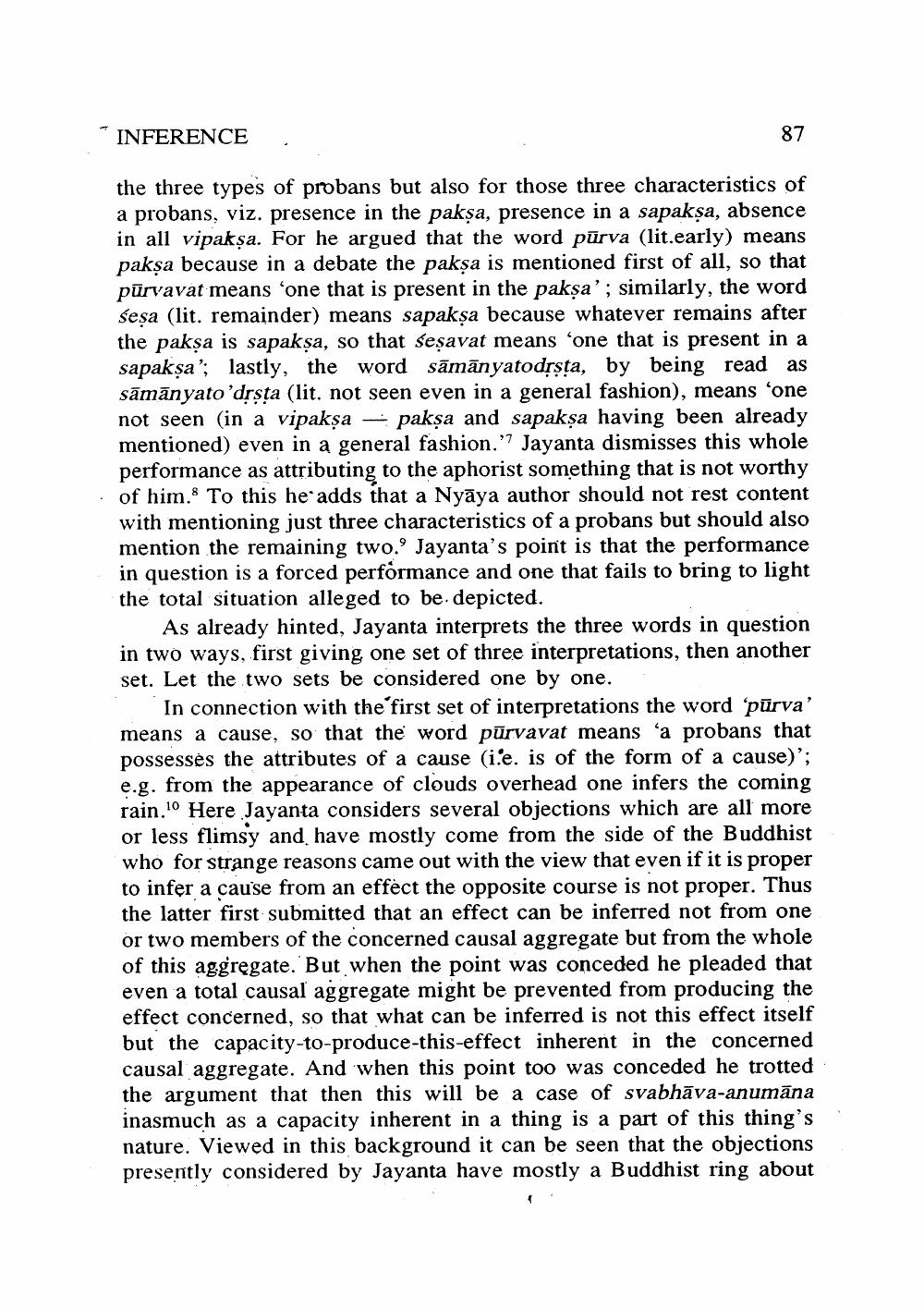________________
INFERENCE
87
the three types of probans but also for those three characteristics of a probans, viz. presence in the paksa, presence in a sapakṣa, absence in all vipaksa. For he argued that the word purva (lit.early) means paksa because in a debate the paksa is mentioned first of all, so that pürvavat means 'one that is present in the pakşa'; similarly, the word sesa (lit. remainder) means sapaksa because whatever remains after the paksa is sapaksa, so that seṣavat means 'one that is present in a sapaksa lastly, the word sämänyatodrsta, by being read as sämanyato 'dṛṣṭa (lit. not seen even in a general fashion), means 'one not seen (in a vipakṣa pakṣa and sapakṣa having been already mentioned) even in a general fashion." Jayanta dismisses this whole performance as attributing to the aphorist something that is not worthy of him." To this he adds that a Nyaya author should not rest content with mentioning just three characteristics of a probans but should also mention the remaining two." Jayanta's point is that the performance in question is a forced performance and one that fails to bring to light the total situation alleged to be depicted.
As already hinted, Jayanta interprets the three words in question in two ways, first giving one set of three interpretations, then another set. Let the two sets be considered one by one.
In connection with the first set of interpretations the word 'pūrva' means a cause, so that the word pürvavat means 'a probans that possesses the attributes of a cause (ie. is of the form of a cause)"; e.g. from the appearance of clouds overhead one infers the coming. rain. Here Jayanta considers several objections which are all more or less flimsy and have mostly come from the side of the Buddhist who for strange reasons came out with the view that even if it is proper to infer a cause from an effect the opposite course is not proper. Thus the latter first submitted that an effect can be inferred not from one or two members of the concerned causal aggregate but from the whole of this aggregate. But when the point was conceded he pleaded that even a total causal aggregate might be prevented from producing the effect concerned, so that what can be inferred is not this effect itself but the capacity-to-produce-this-effect inherent in the concerned causal aggregate. And when this point too was conceded he trotted the argument that then this will be a case of svabhäva-anumana inasmuch as a capacity inherent in a thing is a part of this thing's nature. Viewed in this background it can be seen that the objections. presently considered by Jayanta have mostly a Buddhist ring about.




